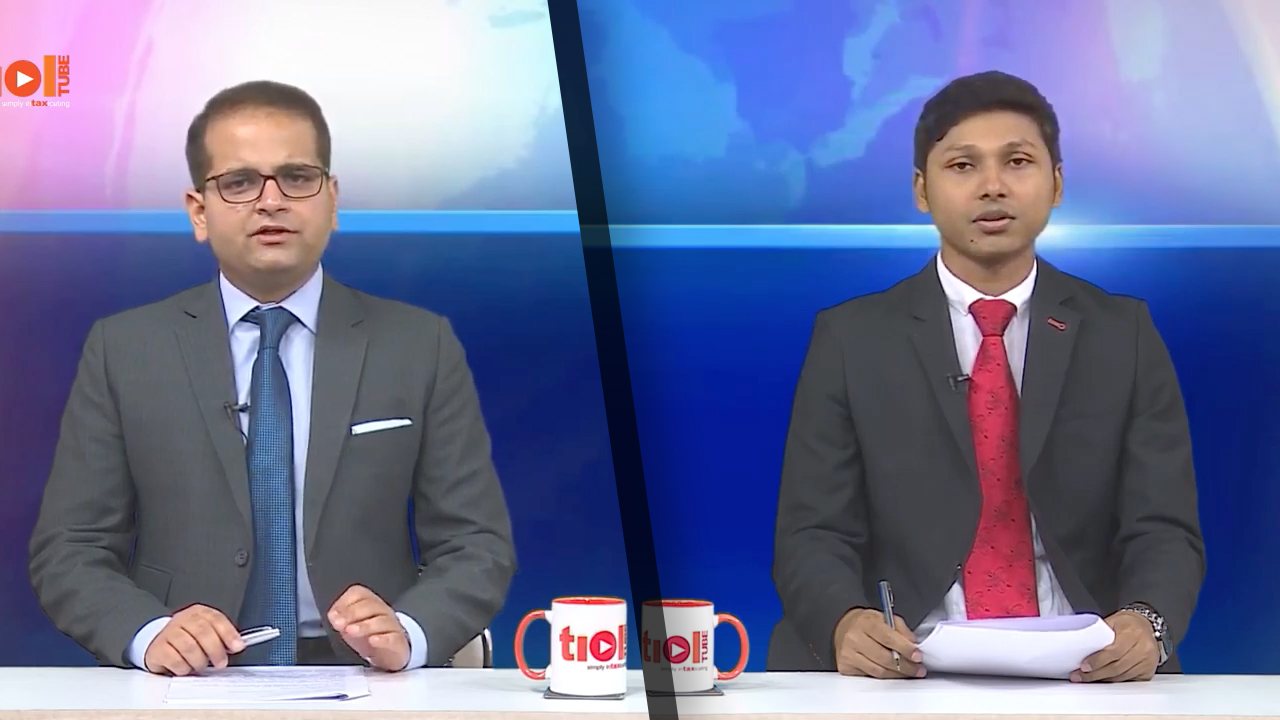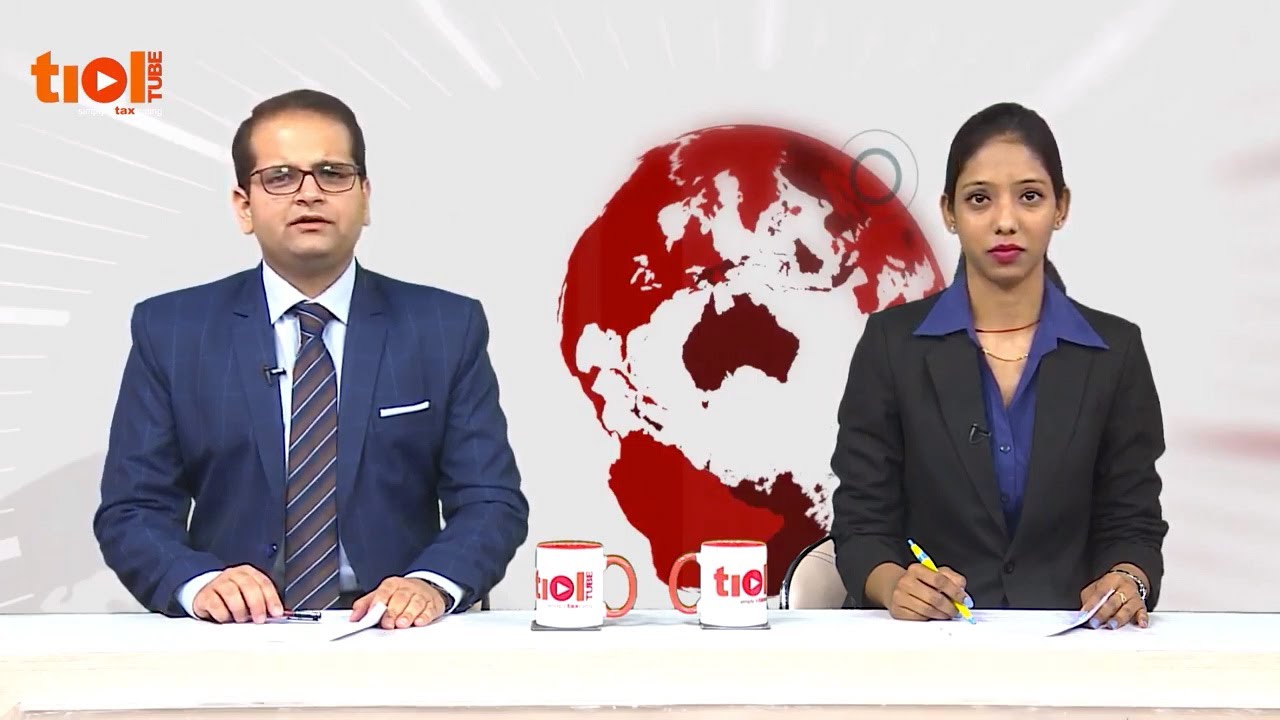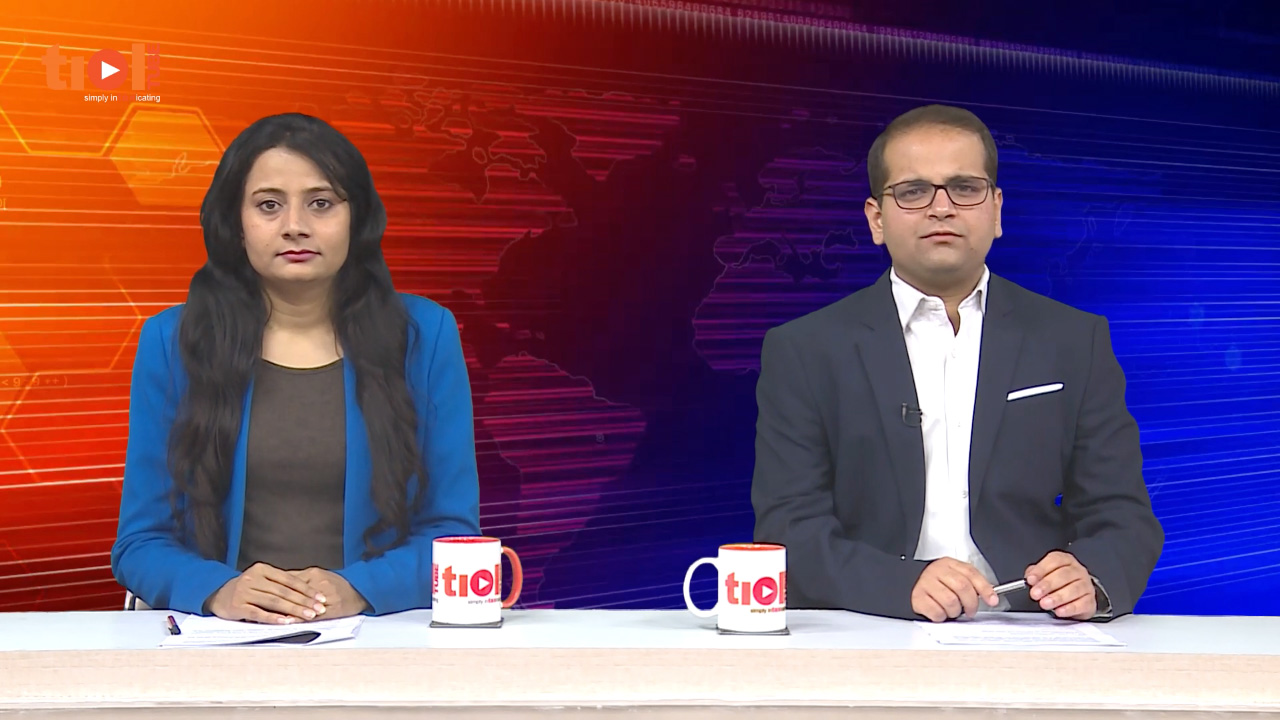|
SERVICE TAX
2019-TIOL-167-SC-ST
CST Vs 3I Infotech Ltd
ST - Transaction undertaken involves sale of software purchased from third parties, such as Oracle, Sybase, etc. on which VAT has been paid - sale of hardware and supply of customized software as per clients specification chargeable to service tax under the category of ‘Information Technology Software Service' after 16.05.2008 and prior to that under ‘Intellectual Property Services' - approach of the adjudicating authority while dealing with the issues is in accordance with the international practices of treatment of software related transactions as elucidated in the deliberations in the Conference of "Committee of Experts on International Co-operation in Tax Matters", Fifteenth Session at Geneva from 17 to 20th October 2017; the paper presented at the said Conference on "Software Payments as Royalties under Article 12" which has considered the treatment of the payments received for transaction in software's and findings from the UN Art. 12 Commentary and the OECD Commentary - However, the first SCN dated 19.10.2009 has been issued demanding service tax under the category of "Management, Maintenance & Repair Service" and, therefore, confirmation of demand under another category viz. Intellectual Property Rights service cannot be justified and to that extent the matter is definitely not maintainable - value of the goods for the provision of the taxable service cannot be excluded from the gross amount charged as consideration for the services provided just for the reason that Sales tax/VAT has been paid on the said goods and value is shown separately, however, the entitlement of notification 12/2003-ST is required to be examined by the adjudicating authority - In the matter of services provided to the SEZ, adjudicating authority to examine adjudicating authority to consider the exemption extended via refund mechanism in terms of notification 9/2009-ST, 17/2011-ST - as Octroi charges are in nature of levy for transportation of goods and cannot be said to be part of value of taxable service; that since the adjudicating has not considered the issue, the matter needs to be remanded - service tax is not payable in respect of services rendered in J&K, therefore, Commissioner to re-quantify the demand - Issue of limitation loses relevance as demand for the period prior to 16.05.2008 has been held as not maintainable.
Held - delay condoned - Tag with Civil Appeal No.9152/2017: SC
-
Notice issued
: SUPREME COURT OF INDIA
2019-TIOL-1067-CESTAT-DEL
M P Housing And Infrastructure Development Board Vs CGST, CE & CC
ST - The assessee is a builder engaged in construction activity that under heavy financing scheme where the assessee is receiving payments in phases over years - It is also an admitted fact that they were paying service tax at the stage of final allotment of constructed residential/Commercial unit after the payment received from the buyers along with taxes at the said final stage - The core issue to be adjudicated is as to whether the assessee was required to pay service tax on the amount received by them from the prospective buyers, in advance - The Notfn 136/2010 as impressed upon by assessee is perused - It becomes clear that vide the said Notification the advance receipt by a builder till 30th June 2010 for which service was provided by him after 30th June 2010 was not to be taxed thereby qualifying that services of assessee were not taxable prior 1/07/2010 - When the explanation as inserted in Section 65(105)(zzzh) is read along with clarification given by CBEC vide letter No. 334/3 TRU, it again becomes amply clear that if agreement is entered into or any payment is received for sale of complex or apartment in residential complex service tax will be leviable on such transaction only w.e.f. 1/07/2010 - The impugned demand for the period since 1/04/2007 till 30th June 2010 is not sustainable the same has wrongly been confirmed, accordingly is hereby set aside - coming to the demand for remaining period, computation thereof so far as abatement whether of 67 per cent of 75 per cent is concerned, in view of Notfn 1/2006 ST, the abatement on construction services till 30th June 2010 was 67 per cent however the said Notification of amended vide Notfn 29/2010 ST with a further amended vide Notfn 26/2012 ST Vide which the taxable service to the extent of 25 per cent only is made taxable - Hence the assessee is held to be entitled for abatement at the rate of 75 per cent - The computation at the rate below is an error apparent, as such the same is liable to be re-computed the matter needs to be remanded for this limited purpose.
Coming to the issue of invoking the extended period of limitation and imposition of penalty on ground of alleged suppression, department has alleged assessee to have deliberately mis-represented the fact with intent to evade payment of service tax but it is simultaneously apparent fact that present is not the case of non payment of service tax the allegation is that the service tax is not paid at the time of receipt of the first instalment from the property buyer but at the time of final payment and allotment - The Apex Court in Gopal Zarda Udyog 2005-TIOL-123-SC-CX-LB has held that when asseessee has a reasonable belief that he is not required to give a particular information only normal period of limitation that is 1 year is applicable - The apparent allegation is delay in discharging the liability the allegation as grave as of misinterpretation and suppression are not at all attributable - The penalty is held being not sustainable, the SCN is rather held to barred by time - The order under challenge is set aside, the matter is sent back to the Adjudicating Authority below for the limited purpose of computing the demand after affording the abatement of the extent of 75 per cent: CESTAT
- Matter remanded: DELHI CESTAT
2019-TIOL-1066-CESTAT-MAD
Express Newspapers Pvt Ltd Vs CGST & CE
ST - The appellant company lets out its property situated in various places, for commercial purposes - On audit, it was noted that the appellant did not pay service tax on rent received from the property situated in two cities, during the relevant period - SCNs were issued proposing duty demand with interest & penalties - On adjudication, the same were confirmed with interest & imposition of penalty u/s 76(1) of the Finance Act - Hence the present appeal.
Held - The appellant claimed that the Revenue did not consider the property tax paid by the appellant when determining the total taxable value - If the appellant has paid taxes then the same has to be considered when determining the total taxable value - The appellant stated that it would produce the necessary documents - Hence in this respect, the matter is remanded to the adjudicating authority to re-quantify the demand after considering the evidence submitted by the appellant - During the relevant period, the issue of taxability of Renting of Immovable Property Service was highly contentious & many cases were pending disposal before various courts - Later, an amendment was brought forth with retrospective effect for the levy - Considering the prevailent confusion in such circumstances, it can be said that the issue was interpretational in nature - Hence the assessee is eligible to receive benefit u/s 80 of the Finance Act - The penalties imposed are set aside - The appeal is disposed off on such terms: CESTAT (Para 2,7,8,9)
- Assessee's appeals partly allowed: CHENNAI CESTAT
CENTRAL EXCISE
2019-TIOL-847-HC-MUM-CX
CCE Vs Durian Industries Pvt Ltd
CX - Maintainability - Allegation of clandestine manufacture and removal and also undervaluation - Revenue is in appeal against Tribunal order dated 14.12.2005 pleading that the Tribunal could not have ignored tangible evidence collected by the department; that the Tribunal was not justified in not considering the judgment of the apex court in D Bhoormull [2002-TIOL-253-SC-CUS] which held that Revenue is not required to prove its case with mathematical precision in the face of the overwhelming evidence produced by Revenue in support of its contention.
Held: Section 35G of the CE Act specifically excludes the jurisdiction of the High Court with regard to the order of the Tribunal dealing with valuation of the goods for the purposes of assessment - Section 35L of the Act itself provides that an appeal to the Supreme Court would be maintainable if the order of the Tribunal ‘amongst other things' relates to an issue of valuation - Thus, even if the order of the Tribunal has dealt with other issues besides valuation, the appeal has to be before the Supreme Court - an order of the Tribunal cannot be bifurcated and it has to be challenged as a whole before one forum, therefore, this Court does not have jurisdiction to entertain this Revenue appeal - considering the fact that the Appeal was admitted by the High Court on 24th July 2008, and has been pending for the last 10 years in this Court, Bench directs the return of the Memorandum of Appeal to the appellant-revenue so as to enable the revenue to file appropriate proceedings before the Supreme Court - Appeal disposed of: High Court [para 6 to 8]
- Appeal disposed of: BOMBAY HIGH COURT
2019-TIOL-830-HC-UKHAND-CX
CGST & CE Vs Rai Bahadur Narain Sugar Mills Ltd
CX - The assessee availed cenvat credit on capital goods used in fabrication of machinery - They made substantial expansion of plant and machinery w.e.f. 08.11.2004, and availed area based exemption under Notfn 50/2003-CE as amended - A demand was raised against assessee along with interest and equal amount of penalty under Rule 15(2) of CCR, 2004 and further penalty was imposed on Chairman and Managing Director of company under Rule 15(1), and on the General Manager of assessee - The SCN does not even state that the assessee had contravened anyone of clauses (a) to (e) of Section 11A(4) - In his order, under appeal before Tribunal, the Commissioner of Appeals held that the question of limitation was a mixed question of facts and law; the department would get five years in case of suppression under Section 11A from the relevant date which is the due date from the date of monthly return; the assessee did not declare these particulars to the department which came to know of this only at the time of audit; and, if this was not detected by audit, the evasion would have gone unnoticed causing permanent loss to the exchequer - It is relevant to note that the assessee did not declare these particulars to the department on the ground that, since the exemption notification was inapplicable on the date of receipt of the goods by the assessee, they were entitled to claim the benefit of Cenvat credit - The bonafide belief of assessee, that they were not liable to pay duty, would not, by itself and without anything more, amount to fraud or collusion or wilful mis-statement or suppression of facts or contravention of provisions of the Act or the Rules with intention to evade payment of duty - The extended period of limitation would apply only to cases where the adjudicating authority has put the assessee on notice of its falling within any one of the clauses (a) to (e) of Section 11A(4) - In the present case that was not done and, consequently, the extended period of limitation is not available to assess the assessee to excise duty - The O-I-O passed by adjudicating authority, was beyond the period of limitation - No substantial questions of law arise from the order passed by Tribunal: HC
- Appeal dismissed
:
UTTARAKHAND
HIGH COURT
2019-TIOL-1065-CESTAT-ALL
Arshiya Northern Ftwz Ltd Vs CC & CE
CX - The appellant is notified as an SEZ - During the relevant period, it wrote to the jurisdictional Central Excise officer, stating to have purchased material which included element of Excise duty and that such material had been exclusively purchased and consumed in the development of the SEZ - Hence it claimed refund of the Excise duty - The jurisdictional Asst Commr. replied by stating that no authority under the Central Excise Act had been cited under which the refund claim had been filed & so rejected the refund application - On appeal, the Commr.(A) held that the exemption from payment of service tax on input services used by SEZ developers is refunded through a notification - It was also held that in case of Excisable goods, no procedure for refund of Excise duty was laid down - It was also held that no duty is payable for procurement of goods & that the rules & notifications governing Central Excise and Service Tax are separate and the laws of one statute cannot apply to another unless the same is expressly provided for in the statute - Thus the present appeal, claiming that the appellant is entitled for refund as per Notfn No 39/2002-CE.
Held - It is seen that Notfn No 39/2002 permits duty-free clearance of goods when such goods are brought into SEZ by a developer - It is also seen that while the appellant was awarded SEZ status w.e.f. 16.11.2010, it claimed benefit of such notification for the period prior to attaining SEZ status - Hence the appellant is ineligible for availing benefit under such Notfn: CESTAT (para 2,3,7)
- Assessee's appeals dismissed: ALLAHABAD CESTAT
2019-TIOL-1064-CESTAT-MUM
Tinslay Bridge Abbros Spring India Pvt Ltd Vs CCE
CX - SCN issued demanding CE duty on the ground that the cost of drawings and designs provided by the customer M/s Tata Motors Ltd. has not been included in the transaction value of goods manufactured by appellant - demand confirmed of Rs.28,503/- along with penalty and interest, hence appeal: CESTAT
Held : In his statement, the Dy. General Manager (Finance) of M/s Tata Motors Ltd., stated that the cost of drawing and design formed part of the final product which suffered payment of appropriate central excise duty at the time of clearance of finished product from the factory - moreover, it is not the case of the department that the appellant had recovered the charges towards drawing and design from the customer - no finding that the price of the product in question was influenced by consideration other than the normal commercial price - demand is unsustainable, hence set aside - appeal allowed: CESTAT [para 3, 4]
- Appeal allowed: MUMBAI CESTAT
CUSTOMS
NOTIFICATION
Trade Notice 06
Laying down of modalities for import of Peas (including Yellow peas, Green peas, Dun peas and Kaspa peas), Pigeon Peas (Cajanus cajan)/Toor Dal, Moong dal and Urad dal for the fiscal year 2019 - 2020 CASE LAW 2019-TIOL-1063-CESTAT-KOL
CC Vs Aman Enterprises
Cus - In view of the reasons as explained in the applications, the delay in filing the appeals before this Tribunal, is condoned - The disputed duty involved in this case is below the monetary limit of Rs.10 lakhs which has been notified by the Government vide Circular 390/Misc./163/2010-JC and F.NO.390/Misc./116/2017-JC - Accordingly, the appeal is dismissed under National Litigation Policy - Stay Petition also gets disposed off: CESTAT
- Appeal dismissed: KOLKATA CESTAT |








